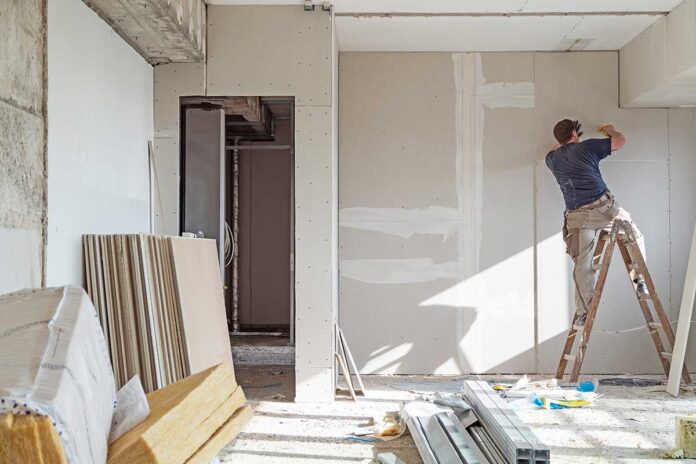Q: We are looking into a larger home, but the housing market is so challenging right now…low inventory, high prices, and multiple bidders. Should I be considering other options?
A: The housing market is surprisingly strong right now. If your family needs more space, your options include remodeling your current home, building a new one, or buying one already on the market. Each alternative has its pros and cons.
If you already own your home or have significantly paid down your mortgage, your first instinct might be to make it larger or more efficient. But you must weigh the time, expense, and inconvenience of remodeling against the pricier options of buying and building. Whichever choice you make, ensure you understand the available financing options.
Get ready for sticker shock.
Housing prices rose over 10% in 2020 thanks to sharply lower inventory.1 Accordingly, the average number of days on market for home sales fell significantly. Demand has been strong in all 50 of the largest U.S. metro markets, but our local Philadelphia Metro real estate professionals can discuss housing prices for the neighborhoods that interest you. Mortgage interest rates are low, making it easier to finance homes despite inflated prices.
Remodeling lets you stay put.
Some considerations that favor remodeling are proximity to schools, work, friends, and family. The cost will depend on the scope of the work and whether you’ll be contributing sweat equity. For 2020, whole-house renovations averaged between $15 and $60 per square foot, depending on home size, appliances, quality of materials, etc.2 If you just want to remodel a bathroom or kitchen, expect to pay $100 to $250 per square foot. Remodeling builds equity, but don’t underestimate the hassle and inconvenience of living on a job site, especially if you’re still planning to work from home for a while.
Homebuilding puts you in control, sometimes.
When you have strong ideas about the shape, size, layout, and location of your home, building it from scratch can make a lot of sense. The average cost to construct a new home in 2020 was $248,000, with cost per square foot ranging from $100 to $155.3 You can simplify the process by buying a plan from a local homebuilder. Furthermore, manufactured and modular homes can go up quite quickly and are usually built to high standards. Don’t forget to factor in the cost of land, permits, legal fees, etc. which can add considerably to the overall expense. In the current environment, supply shortages may also cause some delays, so be sure to factor that into your planning as well.
Homes in all price points are selling at inflated prices.
In 2020, the median home price rose to more than $300,000, and was $307,000 in midyear.4 As inventory narrows, you can expect prices to continue to rise. Budget constraints may have you looking at older homes, which means you will probably be inheriting some problems left over by the seller. Always use an independent home inspector before making a final bid, and budget for any immediate repairs.
Your home is often your costliest investment.
Financing a home purchase, construction, or renovation is an important factor in getting what you want at a price you can afford. Many people are eligible for FHA loans, but there are many other options. If you’ve got the housing bug, contact me to discuss how it fits into your overall financial plan. Together, we can figure out which alternative makes the most sense while observing your financial constraints. I can also help connect you to local LGBTQ+ real estate professionals who can help you with your search as well.
Sources:
1 realtor.com/research/september-2020-data/ [10/1/20]
2 homeguide.com/costs/house-remodeling-costs
3 homeguide.com/costs/cost-to-build-a-house
4 bankrate.com/real-estate/housing-trends [9/21/20]
Jeremy R. Gussick is a Certified Financial Planner™ professional affiliated with LPL Financial, the nation’s largest independent broker-dealer.* Jeremy specializes in the financial planning and retirement income needs of the LGBTQ+ community and was recently named a
2020 FIVE STAR Wealth Manager as mentioned in Philadelphia Magazine.** He is active with several LGBTQ+ organizations in the Philadelphia region, including DVLF (Delaware Valley Legacy Fund) and the Independence Business Alliance (IBA), the Philadelphia Region’s LGBT Chamber of Commerce. OutMoney appears monthly. If you have a question for Jeremy, you can contact him via email at [email protected].
Jeremy R. Gussick is a Registered Representative with, and securities and advisory services are offered through LPL Financial, a Registered Investment Advisor, Member FINRA/SIPC.
This article was prepared with the assistance of DST Systems Inc. The opinions voiced in this material are for general information only and are not intended to provide specific advice or recommendations for any individual. This communication is not intended to be tax advice and should not be treated as such. We suggest that you discuss your specific situation with a qualified tax or legal advisor. Please consult me if you have any questions. To the extent you are receiving investment advice from a separately registered independent investment advisor, please note that LPL Financial LLC is not an affiliate of and makes no representation with respect to such entity.
Because of the possibility of human or mechanical error by DST Systems Inc. or its sources, neither Wealth Management Systems Inc. nor its sources guarantees the accuracy, adequacy, completeness or availability of any information and is not responsible for any errors or omissions or for the results obtained from the use of such information. In no event shall DST Systems Inc. be liable for any indirect, special or consequential damages in connection with subscribers’ or others’ use of the content.
© 2020 DST Systems, Inc. Reproduction in whole or in part prohibited, except by permission. All rights reserved.
*As reported by Financial Planning magazine, June 1996-2020, based on total revenues.
**Award based on 10 objective criteria associated with providing quality services to clients such as credentials, experience, and assets under management among other factors. Wealth managers do not pay a fee to be considered or placed on the final list of 2020 Five Star Wealth Managers.
